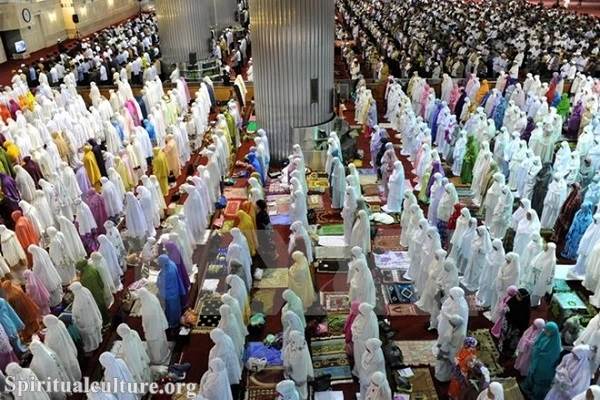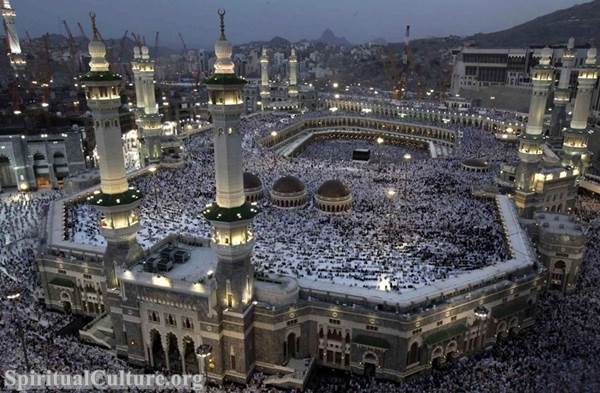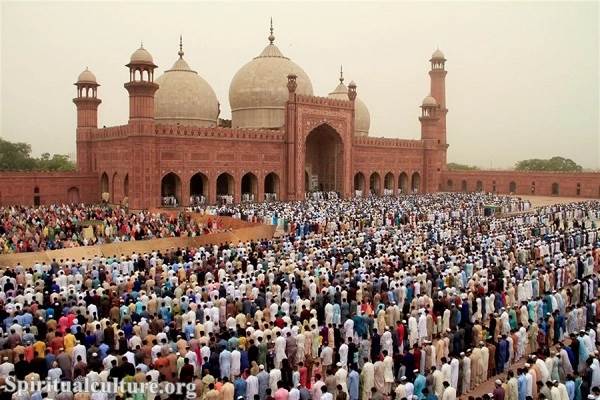Muslim beliefs
Islam is a monotheistic religion based on the belief in one God (Allah) and the teachings of the prophet Muhammad. The central text of Islam is the Quran, which is believed to be the literal word of God as revealed to Muhammad over a period of 23 years.
Muslims believe that Muhammad is the last and final prophet in a long line of prophets, which includes figures such as Adam, Abraham, Moses, and Jesus. They believe that the message of Islam was revealed to bring peace, justice, and harmony to the world and that all people are equal in the eyes of God.
Muslims follow five pillars of faith, which are Shahada (faith declaration), Salah (prayer), Sawm (fasting), Zakat (charity), and Hajj (pilgrimage to Mecca). They believe that performing these acts of worship and living a virtuous life will lead to a person’s salvation in the afterlife.
In Islam, it is believed that everything in the world happens according to God’s will, as determined by the concept of Qadr (predestination). Muslims also believe in the existence of angels, who play a role in the lives of individuals and in the world at large.
Muslims also hold that there will be a Judgment Day when all people will be held accountable for their actions in this life. Those who have lived a virtuous life and followed the teachings of Islam will be rewarded, while those who have not will face punishment.

Islam places a strong emphasis on community and charity. Muslims are encouraged to care for one another and to support those in need. This is reflected in the concept of Zakat, a form of charity that requires Muslims to give a portion of their wealth to those in need.
In addition to the five pillars of faith, Muslims also follow a set of moral and ethical guidelines known as the Sunnah. The Sunnah is a collection of the actions and sayings of the prophet Muhammad and serves as a model for how Muslims should live their lives.
Islam also places a strong emphasis on education and seeking knowledge. Muslims are encouraged to continually seek knowledge and understanding of their faith and the world around them.
The diversity of the Muslim community is reflected in the many different cultural practices and interpretations of Islamic teachings that exist across the world. Nevertheless, all Muslims believe in the basic principles of their faith and strive to live their lives according to the teachings of Islam.
Muslim values
Some important values in Islam include:
- Tawhid: The belief in the oneness of God is the foundation of Islam and is expressed in the declaration of faith (Shahada). It means that there is only one God, Allah, and He is the only object of worship. This belief is expressed in daily prayers, which are performed facing the Kaaba in Mecca, symbolizing the oneness of God.
- Adl: Justice is a fundamental value in Islam and is closely tied to the concept of Tawhid. Muslims believe that God is and that justice reflects His attributes. Muslims are encouraged to strive for justice in all aspects of their lives, including in their personal relationships, in the workplace, and the wider community.
- Ihsan: Excellence in worship and conduct is a central aspect of Islam. Muslims are encouraged to strive for excellence in all aspects of their lives, including in their worship of God and in their interactions with others. This includes being mindful of one’s actions, speaking truthfully, and treating others with kindness and compassion.
- Iman: Faith is a central aspect of Islam and is expressed through belief in the oneness of God, Muhammad’s prophethood, and the Quran’s teachings. Faith is also demonstrated through worship, such as prayer and charity, and good deeds and moral behavior.
- Taqwa: Piety is a central aspect of Islam and is expressed through fear of God and a desire to live a life that is pleasing to Him. This involves avoiding sinful actions and striving to do good deeds, such as helping those in need and speaking kindly to others.
- Risalah: Prophethood is a central aspect of Islam and refers to the belief in the prophethood of Muhammad and the importance of following his example and teachings. Muslims believe Muhammad was the last of a long line of prophets, including Adam, Abraham, Moses, and Jesus, who God chose to guide humanity.
- Akhlaq: Good morals and ethics are central to Islam and are expressed through behavior such as honesty, kindness, compassion, and respect for others. Muslims are encouraged to strive for excellence in their moral character and to avoid actions that are harmful to others.
- Shukr: Gratitude is an important aspect of Islam and is expressed through appreciation for God’s blessings. This includes being thankful for good health, wealth, and the love of family and friends.
- Sabr: Patience is an important value in Islam and is expressed through perseverance in facing adversity and the ability to remain steadfast in facing challenges. This includes being patient in times of difficulty, such as during illness or financial hardship, and in dealing with the shortcomings of others.
- Tawakkul: Reliance on God is a central aspect of Islam and involves trusting in Him and relying on Him for guidance and support in all aspects of life. This includes seeking His help in times of difficulty and relying on Him for strength and guidance in making important decisions.





